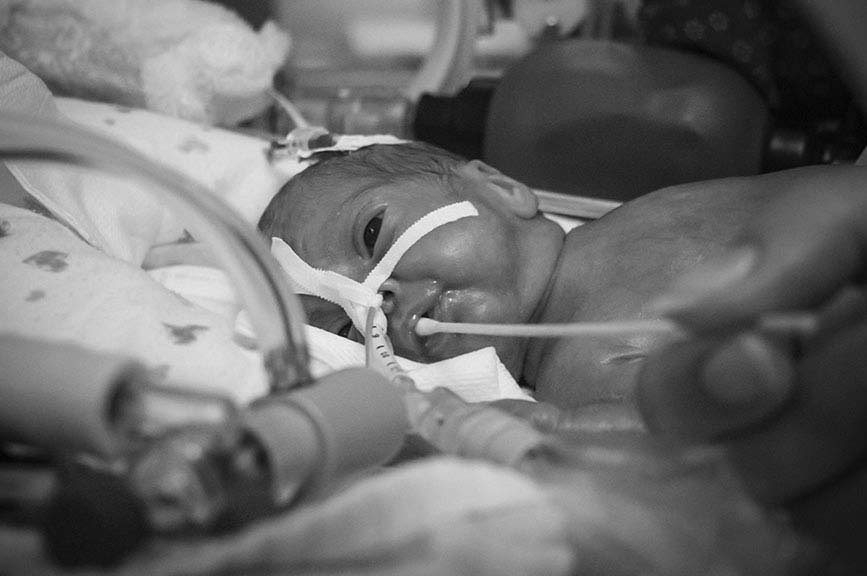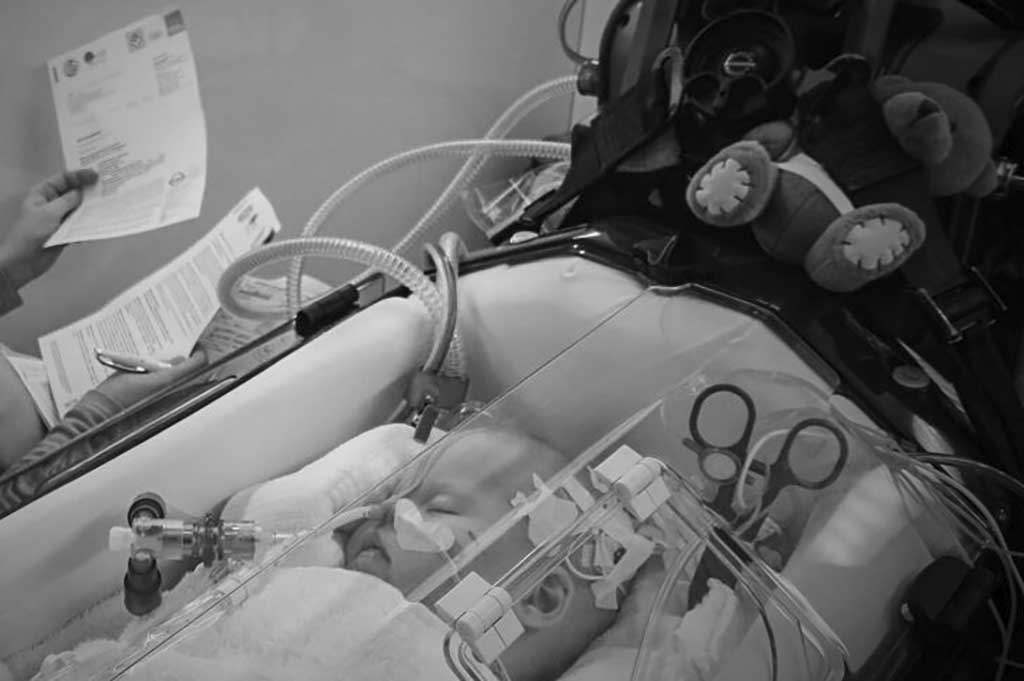Neonatal incubator transport: Helping babies overcome a difficult start to life
When a newborn is premature or first sees the light of day with serious health problems, transfer to a specialist clinic is often necessary for survival. With a neonatal incubator it is possible for newborn transport to where the best care is guaranteed. No matter whether that is in another city, on another continent, or when you need to return from abroad with a tiny infant – PEDIATRIC AIR AMBULANCE offers an incubator transport specially equipped for premature and newborn babies.
You need help?
24/7 Availability
Hotline: +49 8153 880 3999
info@pediatricairambulance.com

What is an incubator?
In colloquial terms we can describe an incubator for the premature as a baby pod. The inside provides neonatal intensive care to sustain life that permits the treatment of premature babies and also makes long distance neonatal transport possible. It maintains a constant temperature, a supply of oxygen with the option of hooking up a ventilator, and keeps the baby sterile and hygienic.
Our neonatal incubators were specially designed with flexibility of usage in mind. In addition to meeting comprehensive technical requirements our incubators for critically ill newborn babies are lightweight, easily moved and simple to install in all forms of transport – factors that facilitate carefully quiet handling.
What happens with an incubator transport?
Once it is known which paediatric hospital shall receive the child, we plan the fastest and safest route to it. Our neonatal transport incubators can be carried inside a specially equipped mobile intensive care ambulance (MICA) or fly in a rescue helicopter or a medical aircraft. The choice of transport means depends on the weather conditions, the distances involved, the situations at origin and destination and above all the state of health of your infant. We are capable of effecting transport everywhere in the world and at all times.
Our equipment
While carried in ambulances and flying in aircraft your child will receive the same level of care it would at an intensive care station in a university hospital. We have the latest generation of neonatal incubators, equipped for the transporting the tiniest of newborn babies. The closest possible monitoring of all vital organs enables us to target an intervention if complications occur. With a ventilator, for example, because the lungs of premature babies are often insufficiently developed.
Our Baby Pod II incubator for neonatal incubator transport is specially designed for flexible deployment and has excellent connection possibilities with the following devices:

- Hamilton T1® – a ventilator that supports even the tiniest of premature babies with a tidal (breathing) volume as low as 2 ml
- Alere EPOC® – a blood gas analysis device that determines oxygen and carbon dioxide levels in the blood
- GE Vscan™ – a sonography and echocardiography device, which allows us to recognise complications as early as possible and gives us a visual display of heart function at all times
- Corpuls C3® monitor for constant monitoring of the patient, equipped with ECG, defibrillator, pacer, SpO2, NIBP and IBP sensors specially adapted for children
- Perfusor® compact S – up to eight syringes for intravenous therapies
- Storz C-MAC® video laryngoscope and further aids for alternative airway management specially adapted for children (e.g. larynx masks, QUICKTRACH® emergency cricothyrotomy set)
- AccuVein® and EZ-IO® – a vein finding system and an intraosseous vascular access system, especially for children
A specially trained neonatal transport team monitors your baby
The anatomy of a child – and especially a newborn baby or infant – is remarkably different to that of an adult, and not only does this call for special devices, but also a special training and most importantly a lot of experience in the intensive care treatment of premature and newborn babies. The newborn transport team that escorts you in cases of need is exclusively specialised in this medical field and undergo continual training updates. During the transport there is at least one intensive care paediatric doctor and one intensive care nurse with neonatal experience in attendance. We will add further experts for special requirements, such as when it is known there are paediatric cardiology, neurosurgical, general surgical or ENT findings.
We are there to help. Talk with us.

